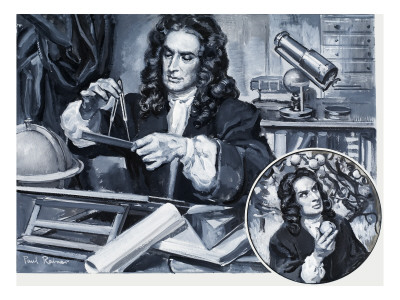I have naively believed for far too long that if a person regularly attends church, sings songs about how God created the world, mentions creation in prayers or liturgy, or homeschools her children, that she must therefore be a creationist.
Those in the old-earth camp say they believe God created the world but that He used long periods of time to allow evolution to take its course. This is obviously different from the young-earth creationists who believe God spoke the world into existence in six literal, twenty-four time periods. Yet both say they are “creationists.”
I am a young-earth creationist, but I have been told that I should not criticize or even “judge” those whose scientific views are different from mine. In addition, as a homeschooling mother, I have been told that it’s important to “open the minds” of my children by exposing them to a variety of viewpoints, allowing them to make their own logical decisions from evidence that all sides bring to a discussion.
So why does a young-earth view of creation matter? Does the Bible have anything to say about this topic?
Young-Earth Creationism Supports the Concept of “Truth”
Is there such a thing as “truth”? Or is everything relative? Even if truth exists, is it possible for us to know it?
These are the questions our children will have to grapple with. Even if we allow them to “open their minds” to many different viewpoints, they will still eventually have to choose one or more that seems to make the most sense to them. What tools will they use to make those choices? All homeschoolers teach these skills to their children, whether they intend to or not.
It is significant that Scripture opens with the words, “In the beginning God created the heavens and the earth” (Genesis 1:1). These words form the most basic premise of everything else in the Bible. In other words, all other things presented in the Bible will be filtered through the lens of how we interpret the first verse.
If we believe that God “created” the world but we mean it only in a mystical, figurative sense, then we will interpret the rest of Scripture with a mystical, figurative sense as well. Commands and promises become bendable to my circumstances, molding to my own opinion.
In math, we believe in absolute truth. Two plus two equals four. Always.
Or does it?
Young-Earth Creationism Believes Scripture over “Science”
Romans 1 says that “what may be known about God is plain to them, because God has made it plain.” The creation of the world, Scripture says, is the tool God uses to teach about His “invisible qualities—his eternal power and divine nature.” In our study of the created world, God is “clearly seen, being understood from what has been made.”
True science is based upon observation of the physical world. In order to believe in evolution, we have to suppress our God-given senses of the physical world. We have to ignore physical evidence and exchange it for a lie.
According to homeschooling author Ruth Beechick,
“The evolution controversy is closely tied to the old-earth versus young-earth controversy. If you believe in a young earth, you believe it is about six thousand years old according to a literal reading of the Bible. If you believe in an old earth, you believe it is billions of years old, according to scientists. Few Christians say they believe in evolution, but many believe in an old earth.
“But evolution and old earth go together. Evolutionists need all those years in their theory because they cannot see how living creatures could evolve in a short time. They do not see how life could form in billions of years, either, but they are trying to think it could. There is no Bible reason whatever for Christians to believe in an old earth. The reason some do is that they are going along with the scientists. They have a faith that science must be right, so they have to somehow make the Bible fit today’s science.” (A Biblical Home Education, by Ruth Beechick, p. 61).
Each of us must make a choice, to choose to believe the Bible or to choose to believe science. Most choose science.
Romans 1 says that we do this because we want to be “god-less.” We don’t want anyone bossing us around, in other words. We would prefer to be wicked, so we suppress the truth, even at the expense of being absolutely foolish.
“For although they knew God, they neither glorified him as God nor gave thanks to him, but their thinking became futile and their foolish hearts were darkened. Although they claimed to be wise, they became fools and exchanged the glory of the immortal God for images made to look like a mortal human being and birds and animals and reptiles” (Romans 1:21-23).
 Here is a key point: When we choose science over Scripture, we “exchange the truth about God for a lie, and worship and serve created things rather than the Creator” (from Romans 1:25).
Here is a key point: When we choose science over Scripture, we “exchange the truth about God for a lie, and worship and serve created things rather than the Creator” (from Romans 1:25).
The scary thing is that when we start believing in evolution (by not retaining the knowledge of God), we lose our ability to think.
“Furthermore, just as they did not think it worthwhile to retain the knowledge of God, so God gave them over to a depraved mind, so that they do what ought not to be done” (Romans 1:28).
True science — with its ability to invent, improve culture, and inspire amazing things — gives way to depravity and the dark ages. It gives way to utter wickedness (Romans 1:26-31). Is it any wonder that education needs to be reformed in our countries? Is it any wonder that we have problems such as homosexuality in the homes of Christian families?
Young-Earth Creationism Teaches How to Have Healthy Relationships
According to Bible Gateway, author Lee Strobel “identifies apathy as the reason more of us aren’t reading our Bibles regularly—people just doubt that the Bible has something meaningful to say to them, so they don’t bother to take a look.” This makes sense to me. If the Bible isn’t truth, then really, why should I bother? Why should my children feel any differently? It’s like doing math problems that you know you’ll never actually use in life.
If Scripture doesn’t apply to life, our children certainly won’t use it to learn how to have healthy marriages, how to build up successful and prosperous businesses, how to treat the poor, how to love justice in society, or even how to protect the unborn.
- “Did not one God create us? Why do we profane the covenant of our ancestors by being unfaithful to one another? …It is because YHWH is the witness between you and the wife of your youth. You have been unfaithful to her, though she is your partner, the wife of your marriage covenant. Has not the one God made you? You belong to him in body and spirit. And what does the one God seek? Godly offspring. So be on your guard, and do not be unfaithful to the wife of your youth” (Malachi 2:10, 14-15).
- “Whoever oppresses the poor shows contempt for their Maker,
but whoever is kind to the needy honors God” (Proverbs 14:31). - “As you do not know the path of the wind,
or how the body is formed in a mother’s womb,
so you cannot understand the work of God,
the Maker of all things” (Ecclesiastes 11:5).
Creation from a literal, young-earth perspective matters because “what we have known from the beginning” is how we learn to walk in the truth (2 John 1:4-5). Without truth, we are adrift, left to our own devices to figure things out. We will always choose selfishly.
Young-Earth Creationism Must Be Taught
As I study the Scriptures, I am struck by how many times we are told we must actually teach things to our children. Just because I have personally read books about creation, have studied the evolution vs. creation debate, or have a grasp of history from a biblical timeline doesn’t mean my children know these things.
“You have seen with your own eyes all that YHWH your God has done…” (Deuteronomy 3:21).
Maybe we as parents have been convinced of the truth of young-earth creationism. However, have our children been convinced? The opportunity to hear about evolution in every facet of their lives — accepted as established truth, never doubted — makes them much more likely to see evolution as truth. It will take a concerted, dedicated effort for us as parents to teach our children what the Scripture says and why it makes sense.
“Remember today that your children were not the ones who saw and experienced the discipline of YHWH your God: his majesty, his mighty hand, his outstretched arm…” (Deuteronomy 11:2).
Unlike what some authors believe, creation and matters of biblical theology are not too difficult for our children to understand.
“At the end of every seven years, in the year for canceling debts, during the Festival of Tabernacles, when all Israel comes to appear before YHWH your God at the place he will choose, you shall read this law before them in their hearing. Assemble the people—men, women and children, and the foreigners residing in your towns—so they can listen and learn to fear YHWH your God and follow carefully all the words of this law. Their children, who do not know this law, must hear it and learn to fear YHWH your God as long as you live in the land you are crossing the Jordan to possess” (Deuteronomy 31:10-13).
If a teenager does not believe in young-earth creationism, is it because his parents didn’t teach him? Could be. Sometimes it could be because a firm belief in the authority of Scripture wasn’t really on his parents’ hearts. It could also be that creation was taught as a church or academic subject but that heart discussions (and opportunities for questions) never occurred. Maybe everyone got too busy. Maybe too many secular library books were checked out, or maybe too much television crept in. Maybe close friendships were formed with companions who were “simple” or even “foolish” toward creation (see Proverbs 1:32, Proverbs 13:20, Proverbs 14:15).
“Love the Lord your God with all your heart and with all your soul and with all your strength. These commandments that I give you today are to be on your hearts. Impress them on your children. Talk about them when you sit at home and when you walk along the road, when you lie down and when you get up. Tie them as symbols on your hands and bind them on your foreheads. Write them on the doorframes of your houses and on your gates” (Deuteronomy 6:5-9).
I am hoping to warn you as a homeschooling parent. Creationism is not just a topic for science or ancient history. Creationism is not just a debate for biblical scholars and scientists. Creationism affects you and it affects your children. Be proactive, and be sure to clearly teach the biblical account of creation to your children. Start young, teach often (daily and weekly), and discuss long.


You say at the beginning of your blog, “Those in the old-earth camp say they believe God created the world but that He used long periods of time to allow evolution to take its course.” Unfortunately, many in on the Young-Earth Creation side label many Old-Earth Creation believers as evolutionists or heretics. They usually do this because they have a lack of understanding of the actual facts in most Old-Earth Creationists views and why they feel that scripture points to an old earth. Well, I believe in an Old-Earth Creation, but do not believe evolution has anything to do with it. Most Old-Earth Creationists do not believe in evolution whatsoever. What you are referring to are those people who believe in Theistic Evolution. This in my opinion is unscriptural and does not encompass all those who are Old Earth in their beliefs. Also, Old-Earth Creationists, at least Day-Age theory, believe in scripture over science. If science does not line up with scripture then science in fact is wrong. I believe the Bible clearly shows that the Creation could in fact have been long periods of time and not just 24hr days. A simple reading of Genesis 2 would show someone that day 6 could not have been a 24 hour day. We must remember that there are many places in the Bible that speaks of the creation story. We must learn to not only take scripture literally, but as a whole. When you read all the creation accounts you see that in fact the Bible points to an Old Earth Creation. The Bible also encourages man to seek knowledge and to look to the Heavens to declare His glory. Why would God create something with an appearance of age, that he would have foreknown would confuse people. God is not a God of confusion or chaos, but a God of order. He has also been the same yesterday, today, and forever. Again, Biblically it would not make since for God to Create in that way. Look at information on http://www.reasons.org to see more on this.
Thank you, Bryan, for your kind and thoughtful response. I appreciate the way you presented this information. 🙂
When I first started studying geology, I separated my faith from the science I was learning. They were in two separate compartments as I felt they were incompatible – my fundamental view of Scripture couldn’t reconcile the scientific for the age of the Earth. While working on my undergraduate degree, I had the privilege of meeting Dr. John D. Morris from ICR. It was a brief visit street he had given the Back to Genesis seminar in the city I was going to college. He signed me up to receive the Acts and Facts monthly newsletter that ICR published. Over the next few years that I received them, I realized that they didn’t put forward any sound scientific evidence for the young-Earth view. Most of the articles were trying to refute the evidence for an old Earth.
While searching the Internet in the mid-2000s, I came across http://www.godandscience.org, led by Richard Deem. His articles made sense to me as they held to a literal interpretation of Scripture and yet showed how science and faith were compatible. I then became part of his organization and started answering online questions. Through Evidence for God From Science I found Reasons to Believe, another old-Earth organization. Taking a couple of online courses from them I became a Volunteer Apologist with them.
So, I do hold to a literal interpretation of Scripture and to an old-Earth view, but not an evolutionary view such as Theistic Evolutionists. The three main views which young-Earth creationism holds to – death before the Fall, a global Flood, and a literal interpretation of day as a 24 hour period of time, have different interpretations from a Biblical perspective, and the different, literal interpretations all show how science and Scriptures are in harmony with each other.
So, as a born again Christian and geologist, I see the old Earth view fully compatible with the Bible. I am open to discussing this with you .
‘Young Earth’ creationists do not believe in death before the Fall. They do believe in a global flood and a literal interpretation of seven days. It would be better to call them biblical creationists, as they look to the Bible first to interpret what they find in the world. Here’s one link about why Christians shouldn’t accept millions of years: https://answersingenesis.org/theory-of-evolution/millions-of-years/why-shouldnt-christians-accept-millions-of-years/ and here’s another link about why ‘young Earth’ creationists are better called biblical creationists: https://answersingenesis.org/creationism/young-earth/young-earth-creationists/ I found Answers in Genesis to be extremely helpful in answering all questions I had about creation and evolution. 🙂
I would like to know how you hold to a literal interpretation of the Scripture as well as an old-Earth view.